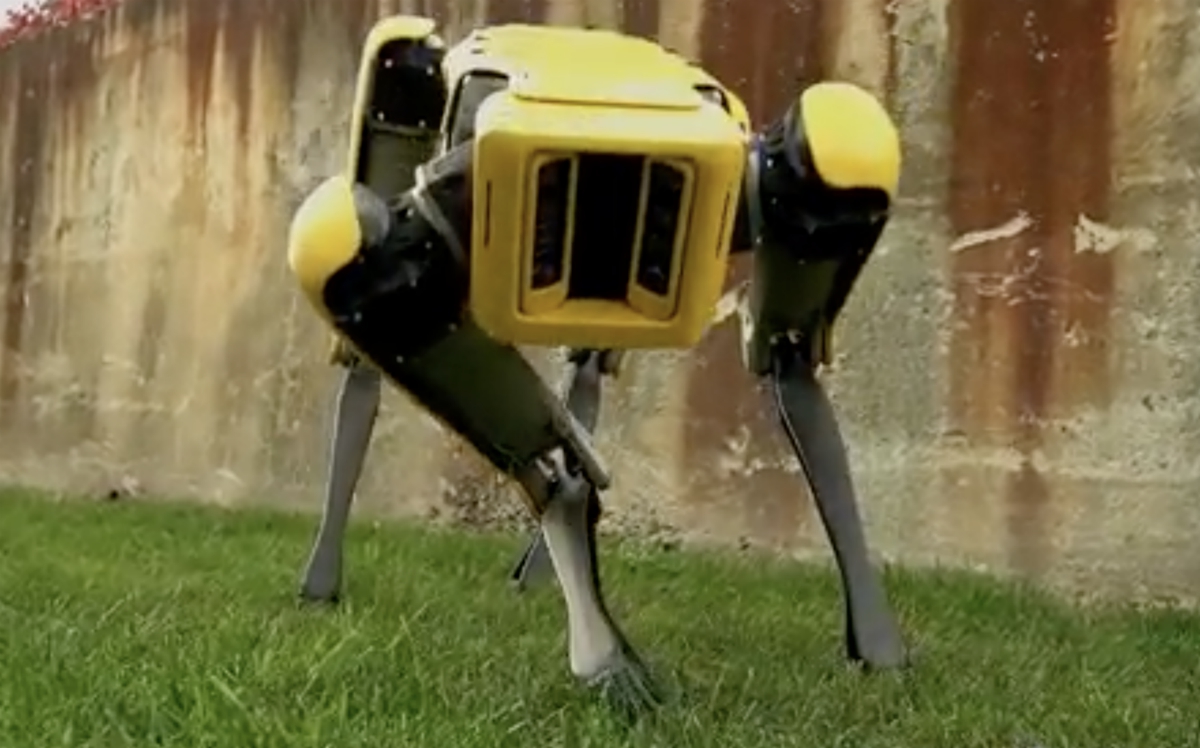
Ghost Robotics, maker of four-legged robots for the military, has teamed up with SWORD International to build a mechanical dog that is capable of carrying a remote-controlled rifle on its back.
The robot dog called Special Purpose Unmanned Rifle (SPUR) has a 6.5 mm Creedmoor rifle from SWORD attached to its back. The SPUR has made its debut at the Association of the U.S. Army's main annual convention in Washington, D.C.
Ghost Robotics has also partnered with other companies to explore defense and security applications for its quadrupedal unmanned ground vehicles (Q-UGVs), but SPUR appears to be the first to successfully mount a weapon.
Other examples of unarmed Q-UGVs are already in limited use in the U.S. Air Force's 325th Security Forces Squadron at Tyndall Air Force Base in Florida, where they are being tested by other units in the service.
The configuration of the 6.5 mm gun in the SPUR module is unclear. In terms of the weapon itself, SWORD offers derivatives of the gun model as well as similar but larger caliber guns. The weapon used in the SPUR module looks like it could have a sound suppressor fitted to the front end, which could make it more difficult for opponents to determine its location.
While the 6.5 mm Creedmoor is not currently in widespread use by the military or any other security forces in the United States or elsewhere, the Special Operations Command is in the process of acquiring light ammunition of this caliber. Testing has shown that this gun model actually offers increased range over various 7.62x51mm cartridges that are currently available to the U.S. special operations community.
Ghost Robotics also said that SPUR is capable to fire with precision up to 1,200 meters or 3,940 feet. It also features impressive stabilization capabilities due to its quadrupedal design.
As for targeting, the SPUR module has its own sighting system using software that could be used to enable a human to aim at targets and engage with them with the robot's rifle. The Air Force is already in discussion regarding the operation of the Q-UGV from its centralized command facilities through virtual reality headsets.
Additional autonomy for weaponized robot dogs
SPUR could also be programmed to have additional autonomy, potentially employing artificial intelligence-driven capabilities to detect or "lock-on" potential threats. However, an operator ultimately has to give the approval before it can shoot. (Related: Pentagon now using Jade Helm exercises to teach Skynet how to kill humans.)
Regardless, giving the Q-UGV a weapon of its own can offer a way to prosecute any target that it may come across. This could be valuable if the robot dogs can get into tight spaces that can present significant risks to their human handlers. The gun could also give it the option of engaging threats at more extended ranges, making it highly advantageous for perimeter security tasks in expeditionary scenarios or for scouting and other urban warfare military operations.
Air Force Major Jordan Criss, head of the 325th Security Forces Squadron, says: "These dogs will be an extra set of eyes and ears while computing large amounts of data at strategic locations throughout Tyndall Air Force Base. They will be a huge enhancement for our defenders and allow flexibility in the posting and response of our personnel."
Arming these robots adds a new tier of capability for unmanned systems as it could increase their flexibility when used in different roles. However, the ramifications of the use of these robot dogs are not yet known.
Many academics and journalists have said something about warfare changing with increased gamification, such as using Xbox controllers as Boeing High Energy Laser Mobile Demonstrator did in a test for the U.S. military. It can also cover a greater distance between targets on the battlefield.
Read more about military technology and how artificial intelligence can be weaponized at MilitaryTech.news.
Sources include:
Please contact us for more information.





















